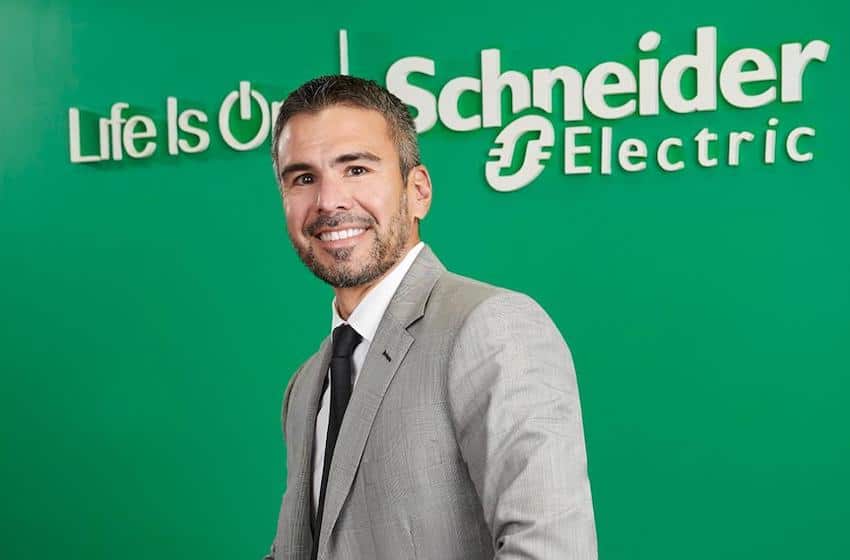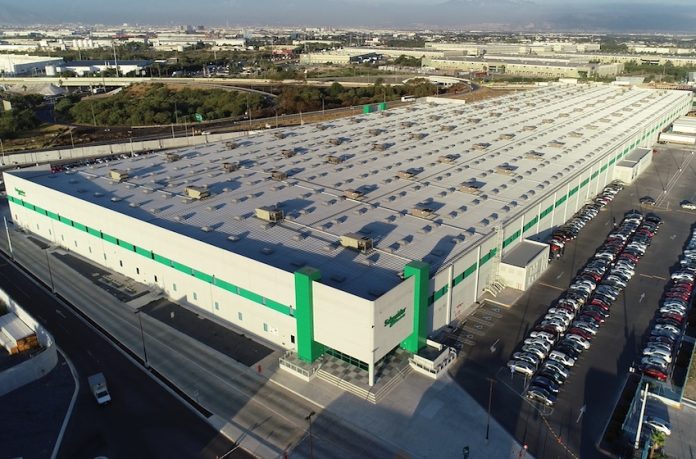Two weeks after Schneider Electric inaugurated a US $29.4 million plant in Monterrey, the CEO of the French multinational’s Mexican and Central American operations declared his faith in nearshoring.
Jesús Carmona, CEO of Schneider Mexico and Central America, recently told the newspaper El Economista that he is bullish on nearshoring, insisting that the impact in Mexico over the next 30 years will be enormous.

“I believe in nearshoring because I see [its impacts] every day,” he said. “The first place to feel its impact was Monterrey, but we see it in other northern cities and in the Bajío [region]. I have no doubt it will reach southern Mexico as well.”
Describing how Schneider’s presence in Mexico doubled between 2021 and 2023, Carmona said there are three reasons for his company’s accelerated growth here: “nearshoring, increasing demand for efficient solutions to electrical energy needs, and the great abilities of Mexican labor.”
Schneider employs 1,600 people across Mexico in 10 plants, with 1,000 of those workers hired in the past four years. Last year, Schneider invested US $72.5 million in its Mexican energy automation services.
At the June 13 inauguration of the new plant known as Monterrey 4, Schneider’s director of operations in North America, Agustín López, said that the new plant in Monterrey — its fourth facility in the northern Mexico city — would strengthen its local economic ecosystem by 17%–20% over the next two to three years.
“We are always trying to optimize our technological capital via the development of a campus,” he said. “That’s why we build these production centers.”
Monterrey 4 will eventually create 460 jobs (257 people are on the payroll at present) and will be focused on the manufacture of specialized products, such as low-voltage electrical distribution boards — essential for hospitals, data centers; digital companies and organizations with high energy consumption.

Schneider Electric, which has been operating in Mexico since 1945, specializes in digital automation and energy management by combining energy technologies, real-time automation, software, and services.
The 183,000-square-foot plant will boost the company’s production in North America as it will be an Engineer to Order (ETO) facility, which manufactures products to customer specifications and engineering designs.
López said that by next year, its four plants in Monterrey will reach net-zero status (a balance between the amount of greenhouse gas emissions produced and the amount removed from the atmosphere). The new plant is also the first in the world in which it will be possible to reutilize scrap metal.
In addition to the new Monterrey plant, Schneider is also building an 11th plant in the state of Tlaxcala.
With reports from El Financiero and El Economista
